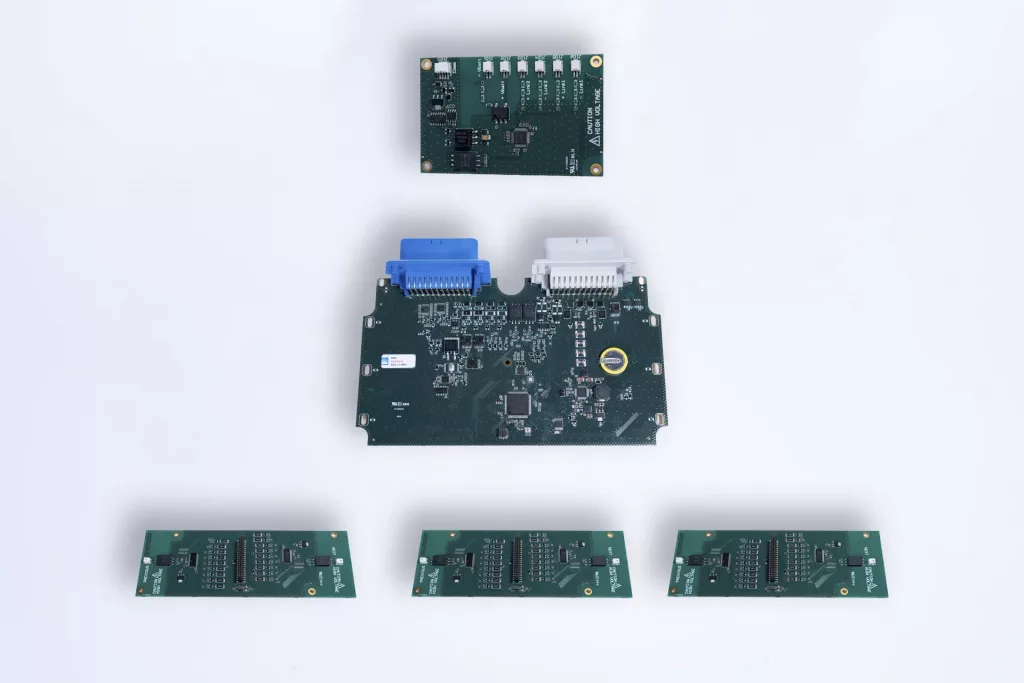
Technical description
Cells management
- Master/Slave architecture
- Possibility to connect up to 20 CMC in series to manage a battery pack with a voltage up to 1000 Volts
- Possibility to connect up to 7 BMC in parallel thanks to an EMS
- Management from 5 to 12 cells in series per CMC, compatible with all cell technologies (NMC, Na Ion, LFP, LTO…) :
o NMC/Na Ion : From 5S to 12S*
o LFP : From 6S to 12S*
o LTO : From 8S to 12S*- +/- 2 mV of accuracy
- Management of 4 NTC temperature sensors per CMC
Protections
- Overcharge and undercharge, tunable by software
- Overcurrent and over/under temperature, tunable by software
- Designed following ISO26262, equivalent ASIL B
Power box
- Bidirectional measurement of the battery current with a hall effect sensor
- Charge and discharge management
- Command up to 4 external electromechanical contactors
- Command up to 2 current sensors
Smart functions
- SOC and SOH calculation
- Advanced self-diagnostic of the board
- Communication by 2 CAN bus 2.0B (opto-isolated)
- Calculation of max charge and discharge current allowed.
- Insulation measurement through an external board (bender)
- Black box integrated with faults history storage and life counters
- Possibility to modify the parameters (cells characteristics, alarms thresholds…) using the Supervision software
- Passive balancing with a 150mA bypass current per cell
Spare IO (function can be customized)
- 2 High Side outputs
- 2 Low Side outputs
- 3 Analog inputs
- 3 Digital inputs
- 1 PWM input
Power supply
- Power supply
- The EMS and BMC are powered with an external 12V/24V power supply
- The IMC is powered from the BMC
- The CMCs are powered from cells
- Low consumption in standby mode (on cells): < 5 μA
* 18S available on request, other configurations can be developed on separated demands.
Mechanical format
- CMC: 103.5mm x 55.5mm
- BMC: 227,6 mm x 130.4mm
- IMC: 96mm x 64mm
* 18S available on request, other configurations can be developed on separated demands.
